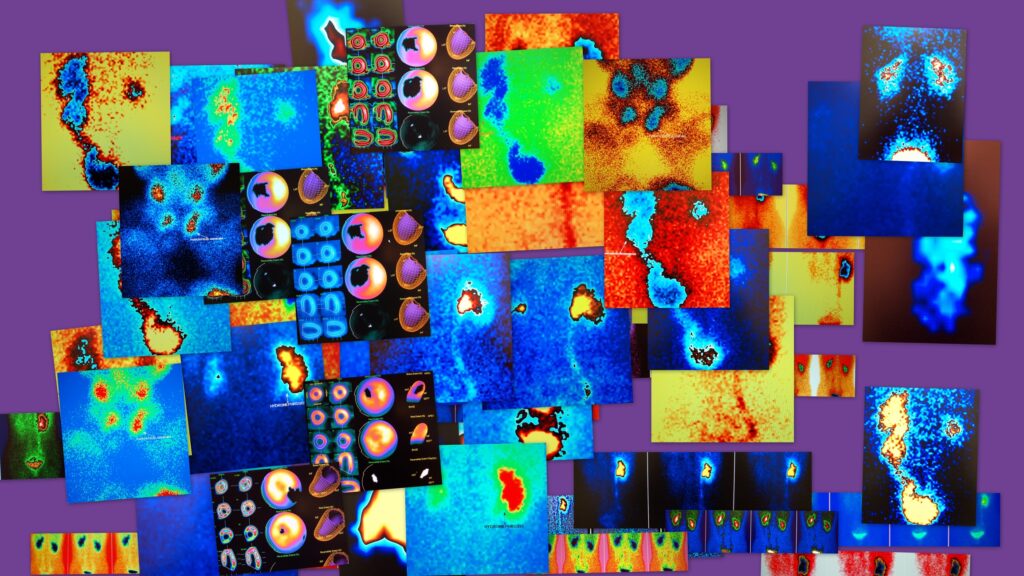AlphaGo, developed by DeepMind, a subsidiary of Google, represents a significant milestone in artificial intelligence (AI), marking one of the earliest times an AI outperformed human experts in the ancient Chinese board game Go. This game, known for its complexity and strategic depth, has been considered a significant challenge for AI, even more so than chess, due to the vast number of potential moves. The success of AlphaGo highlighted the advancements in machine learning, particularly in reinforcement learning and neural networks. This article explores the development of AlphaGo, its underlying technologies, its historic victories, and its impact on AI research and society at large.
Introduction: The Quest to Conquer Go with AI
Artificial intelligence has long been a subject of fascination for scientists and technologists, especially its potential to rival or even surpass human cognition in complex tasks. One of the ultimate challenges for AI had been mastering the game of Go. Unlike chess, where AI programs had already surpassed human champions by the late 1990s, Go’s complexity proved a greater hurdle. Go has vastly more potential board configurations than chess, and strategies often require intuition and long-term foresight—traits historically attributed to human intelligence.
AlphaGo, an AI developed by DeepMind in the mid-2010s, shattered expectations by defeating world champion Lee Sedol in 2016. The program not only revolutionised AI research but also opened the door for future AI applications that rely on deep learning and neural networks. AlphaGo was a landmark event in AI, showcasing its ability to learn complex strategies and apply them to real-world scenarios.
The Game of Go: An AI Challenge
Go, a board game originating in China more than 2,500 years ago, involves two players who alternate placing black or white stones on a 19×19 grid. The objective is to capture more territory than the opponent by surrounding their stones. While the rules of Go are simple, the game’s strategy is extraordinarily complex. The number of potential moves in Go far exceeds that of chess, and the sheer number of possible board positions makes brute-force calculation, a method used by earlier chess engines like IBM’s Deep Blue, impractical.
The difficulty for AI lay in Go’s need for pattern recognition, abstract reasoning, and positional judgment rather than purely calculative thinking. Human Go players often describe the game as requiring a form of intuition or ‘feeling,’ making it a particularly intriguing challenge for AI developers. Before AlphaGo, most AI attempts to play Go were limited to rudimentary algorithms or Monte Carlo Tree Search techniques, which couldn’t approach human professional play levels.
DeepMind and AlphaGo: The Development
DeepMind, a London-based AI company acquired by Google in 2014, set out to address the challenge of Go. Unlike previous approaches to AI Go engines, AlphaGo did not rely solely on pre-programmed rules or move databases. Instead, DeepMind used a combination of deep learning and reinforcement learning. AlphaGo utilised neural networks to learn patterns from millions of Go games, allowing it to predict the best move in any given situation.
Neural Networks and Deep Learning
The backbone of AlphaGo’s success is deep learning, a type of machine learning that uses neural networks with many layers. These networks are designed to simulate the way the human brain processes information, enabling the AI to recognise complex patterns and make decisions based on them.
For Go, AlphaGo’s neural networks were trained on a large database of professional games, allowing it to develop a sense of what constitutes a good move. It employed two types of neural networks: a policy network to predict the next move and a value network to evaluate board positions. These networks were enhanced by a Monte Carlo Tree Search, a method used to explore possible future moves by simulating different game outcomes.
Reinforcement Learning
Beyond supervised learning from game databases, AlphaGo was also trained using reinforcement learning. In reinforcement learning, the AI plays against itself repeatedly, learning from its mistakes and refining its strategies over time. Through this method, AlphaGo developed skills that even went beyond what it had learned from human games. It discovered novel strategies that were not commonly used by human players, showing the potential for AI to go beyond human imitation.
The Historic Matches: AlphaGo’s Ascension
AlphaGo first rose to prominence in October 2015, when it defeated the European Go champion Fan Hui, a professional 2-dan player, in a closed-door match with a score of 5-0. This victory was an initial indication of AlphaGo’s potential, but the AI’s ultimate test came in March 2016, when it was set to face one of the greatest Go players in history, Lee Sedol, a 9-dan professional.
The match between AlphaGo and Lee Sedol was highly anticipated, not just within the Go community but across the entire tech industry. In a best-of-five series, AlphaGo won four games to one, marking a watershed moment in AI history. Lee Sedol, a player renowned for his creativity and tactical brilliance, was defeated by a machine that had learned to play Go in ways that even he hadn’t anticipated.
Game 2: The Creative Moves of AlphaGo
One of the most memorable moments in the series occurred during the second game when AlphaGo made an unconventional move—Move 37—which stunned professional players and commentators alike. The move was considered highly unusual for human standards, with some even labelling it a mistake at first glance. However, as the game progressed, it became evident that this move was part of a broader strategy that only AlphaGo, with its vast processing power and unique learning ability, could conceive.
Lee Sedol himself praised the move, acknowledging that it changed his view of Go. This moment demonstrated that AI could not only mimic human decision-making but could also innovate in ways beyond human cognition.
Lee Sedol’s Victory: The Human Spirit
Lee Sedol did manage to win one game, the fourth in the series, in what many viewed as a triumph for human intuition over machine precision. The victory came after AlphaGo made an error in the midgame that led to a poor evaluation of the board state. Sedol’s win was hailed as a reminder that, while AI had advanced significantly, human creativity and intuition still held value in strategic decision-making.
AlphaGo’s Legacy and Impact
AlphaGo’s victory over Lee Sedol was more than a technological triumph—it signalled a new era in AI research. By mastering Go, AlphaGo proved that AI could solve problems once thought to require human intuition and creativity. The techniques developed for AlphaGo—particularly in reinforcement learning and deep learning—have since been applied to other fields. AlphaGo’s successor, AlphaZero, demonstrated that a single AI model could learn to play not only Go but also chess and shogi at a superhuman level without human intervention, showing the versatility of the underlying technology.
Broader Implications for Society
AlphaGo’s success also ignited discussions about the future of AI in society. The idea that machines could outperform humans in tasks involving creativity and intuition led to questions about AI’s role in decision-making processes, particularly in fields like healthcare, law, and finance, where human judgment has traditionally been essential.
There are concerns about the potential loss of jobs as AI becomes more proficient in tasks that were once exclusively human domains. However, many also see AI as a tool that could augment human capabilities rather than replace them, particularly in fields requiring data analysis, pattern recognition, and strategy development.
Ethics and Future Prospects of AI
As AI systems like AlphaGo become more prevalent, ethical concerns surrounding AI development have also gained attention. Issues like the transparency of AI decision-making processes, the potential for AI to be used in malicious applications, and the long-term implications of autonomous systems are now key topics of debate.
Moreover, AlphaGo’s success has spurred new questions about what it means to be intelligent. While AlphaGo excels at Go, it lacks the general intelligence to apply its strategic thinking to other areas without retraining. This raises the question of whether AI will ever achieve the kind of generalised, adaptable intelligence that humans possess or whether AI systems will remain highly specialised tools.
Conclusion: A New Frontier in AI and Beyond
AlphaGo stands as a testament to the power of artificial intelligence and its potential to solve complex problems that once seemed out of reach for machines. Through deep learning, neural networks, and reinforcement learning, AlphaGo not only mastered the ancient game of Go but also paved the way for advancements across multiple AI domains.
The implications of AlphaGo’s success stretch beyond the board, signalling both the vast potential and the challenges posed by AI in the coming decades. As AI continues to evolve, AlphaGo will be remembered as a landmark achievement, representing the dawn of a new era in the intersection of human intelligence and machine learning.
Disclaimer:
The content of this article, “AlphaGo: AI Conquers Go, Redefining Human Intelligence”, is intended for informational and educational purposes only. It reflects the views and interpretations of the author(s) and is not endorsed by DeepMind, Google, or any individuals or organisations mentioned. While every effort has been made to ensure the accuracy of the information presented, Open Medscience does not guarantee the completeness, reliability, or timeliness of the content. Readers should not rely solely on this article for critical decision-making and are encouraged to consult primary sources or official publications where appropriate. Any references to future implications of artificial intelligence are speculative and should not be taken as predictions or guarantees.




